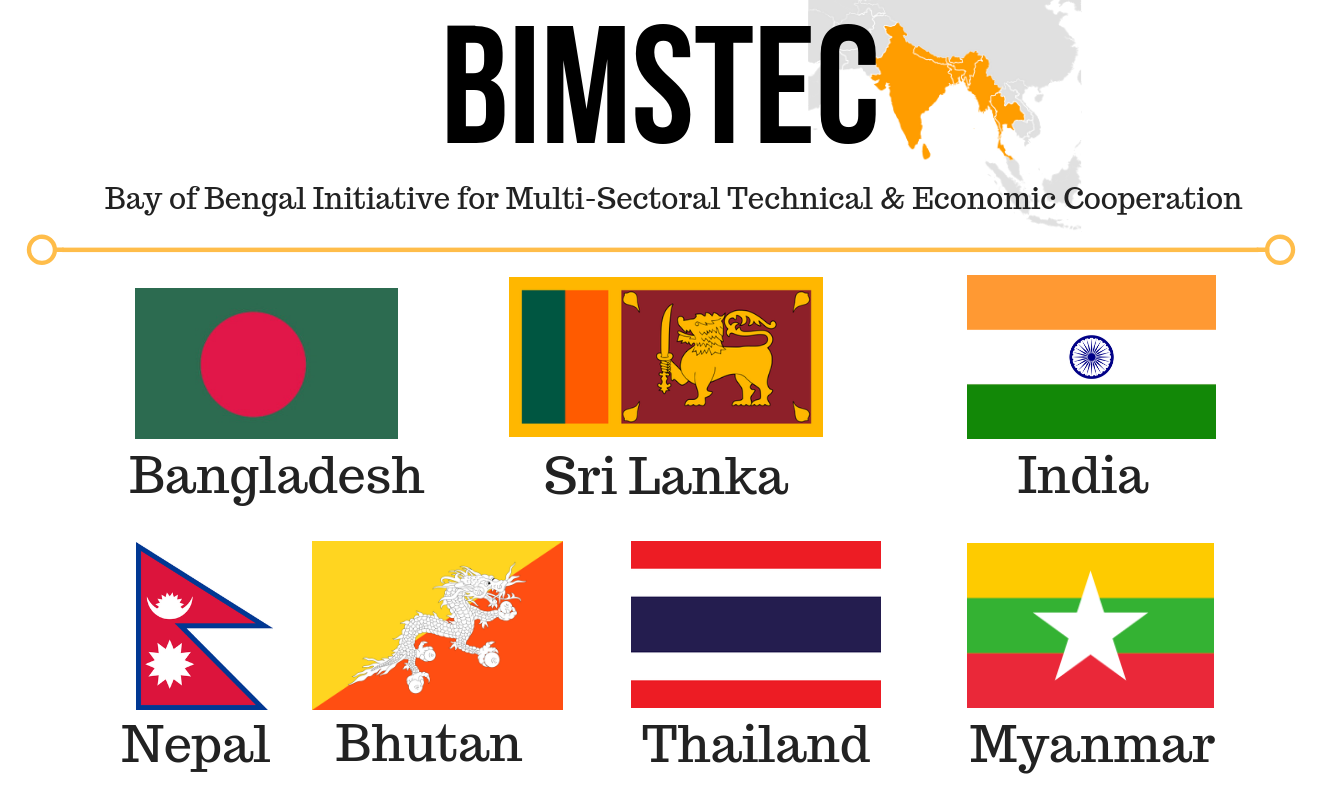Bay of Bengal Initiative for Multi-Sectoral Technical and Economic Cooperation (BIMSTEC)

- 23 May 2024
Why is it in the News?
The Bay of Bengal Initiative for Multi-Sectoral Technical and Economic Cooperation (BIMSTEC) will now be open to new members and observers after a historic first charter of the grouping came into force on 20 May.
What is BIMSTEC?
- The Bay of Bengal Initiative for Multi-Sectoral Technical and Economic Cooperation (BIMSTEC) is a multilateral regional organization that brings together seven member states located in the littoral and adjacent areas of the Bay of Bengal, forming a contiguous regional unity.
- Aims: The primary aim of BIMSTEC is to accelerate shared growth and cooperation among littoral and adjacent countries in the Bay of Bengal region.
- Formation: The organization was initially founded as BIST-EC in June 1997, following the adoption of the Bangkok Declaration.
- The founding members included Bangladesh, India, Sri Lanka, and Thailand.
- With Myanmar's entry in late 1997, the organization evolved into BIMST-EC (Bangladesh, India, Myanmar, Sri Lanka, and Thailand Economic Cooperation).
- In 2004, the inclusion of Nepal and Bhutan led to the formation of BIMSTEC, as we know it today.
- The current member states comprise five South Asian nations: Bangladesh, Bhutan, India, Nepal, and Sri Lanka, and two Southeast Asian nations: Myanmar and Thailand.
- BIMSTEC's Permanent Secretariat is situated in Dhaka, Bangladesh, serving as a hub for regional cooperation and coordination among member states.
Areas of cooperation:
- BIMSTEC functions as a sector-driven cooperative organization, initially focusing on six key sectors: Trade, Technology, Energy, Transport, Tourism, and Fisheries.
- Over time, the scope of cooperation has expanded, and as of now, BIMSTEC has identified 14 priority areas of cooperation.
- The inclusion of Climate Change in 2008 marked the 14th priority area.
- Within these priority areas, each member country takes responsibility for leading specific sectors.
- This allows for focused efforts and utilization of regional expertise.
- India, for example, is the leading country in several crucial areas, including Transport & Communication, Tourism, Environment & Disaster Management, and Counter-Terrorism & Transnational Crime.
- This leadership role involves coordinating initiatives, sharing best practices, and driving collaborative efforts within these sectors to enhance regional development and cooperation.
